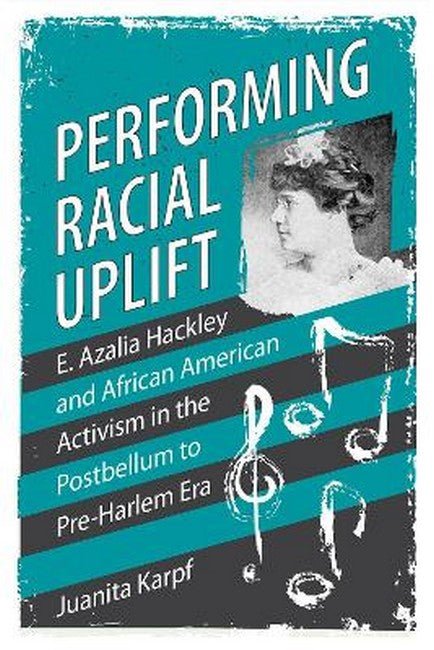Juanita Karpf played cello professionally, taught music in grades K-12, and held positions at the University of Georgia, Oberlin College, and Case Western Reserve University. Her research has appeared in such publications as American Music, Black Music Research Journal, and Popular Music and Society.
Request Academic Copy
Please copy the ISBN for submitting review copy form
Description
This book is a joy to read. . . . An exemplary model of research methods, this richly engaging book will appeal to and encourage readers across disciplines. Essential.--S. Schmalenberger "CHOICE" In Performing Racial Uplift, Juanita Karpf makes an important contribution to our awareness and understanding of a phenomenal musician, activist, and educator, as well as the era in which she lived. Although Madame Emma Azalia Smith Hackley (1867-1922) has largely faded from memory and public record, Karpf's decades of research create a surprisingly comprehensive account and one which provides rich historical contextualization.--Benjamen W. Douglas, University of Arizona "American Nineteenth Century History" For too long the contributions of concert artist, educator, and impresario Azalia Hackley have been pushed into the margins of American music historiography. Performing Racial Uplift corrects this by offering a nuanced reading that not only captures the life of this transformational figure but situates Hackley into larger historical narratives that connect her with Black women activists such as Ida B. Wells, Anna Julia Cooper, and Frances Harper, who were also central in shaping the ideology of racial uplift in Gilded Age America.--Tammy L. Kernodle, University Distinguished Professor of Music at Miami University in Ohio and author of Soul on Soul: The Life and Music of Mary Lou Williams Juanita Karpf's insightful and probing analysis of Azalia Hackley--performer, music educator, author, lecturer, and activist--offers a fascinating and nuanced look at this gifted concert artist and her unique strategies for uplift activism. Endowed with charisma and guided by a lifelong commitment to the tenets of the New Thought Movement, Hackley passionately pursued an approach to music education for the masses that instilled racial pride and self-esteem. She modeled expressions of resistance that found middle ground between the perceived binary stances of the Du Bois and Washington ideologies. Through engaging dialogue, detailed scholarship, and rich context, Performing Racial Uplift reawakens us to Azalia Hackley's significant contribution as a pioneering musician and important leader of her race.--Toni P. Anderson, author of Tell Them We Are Singing for Jesus: The Original Fisk Jubilee Singers and Christian Reconstruction, 1871-1878

